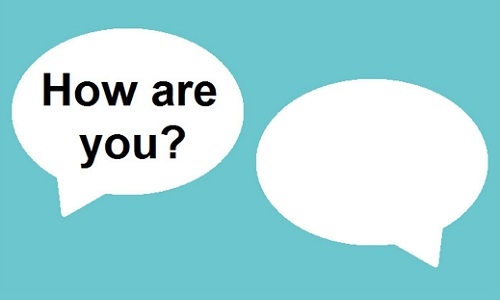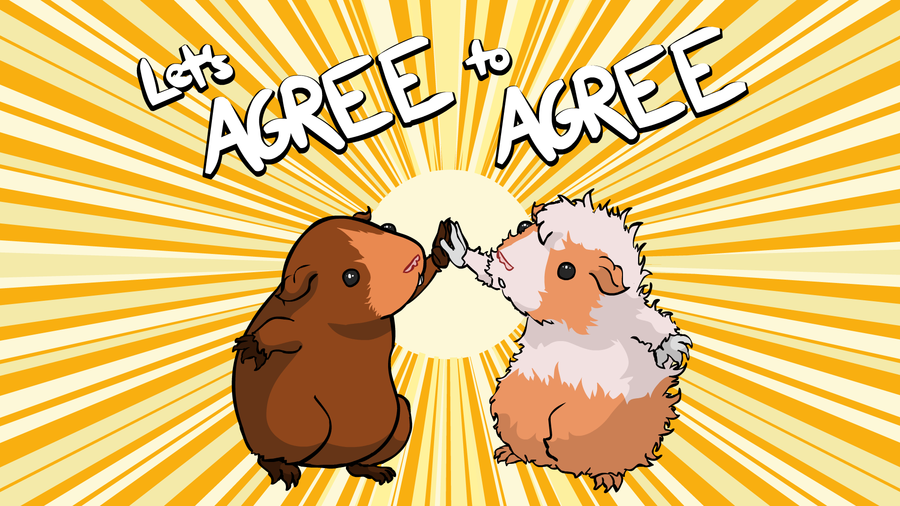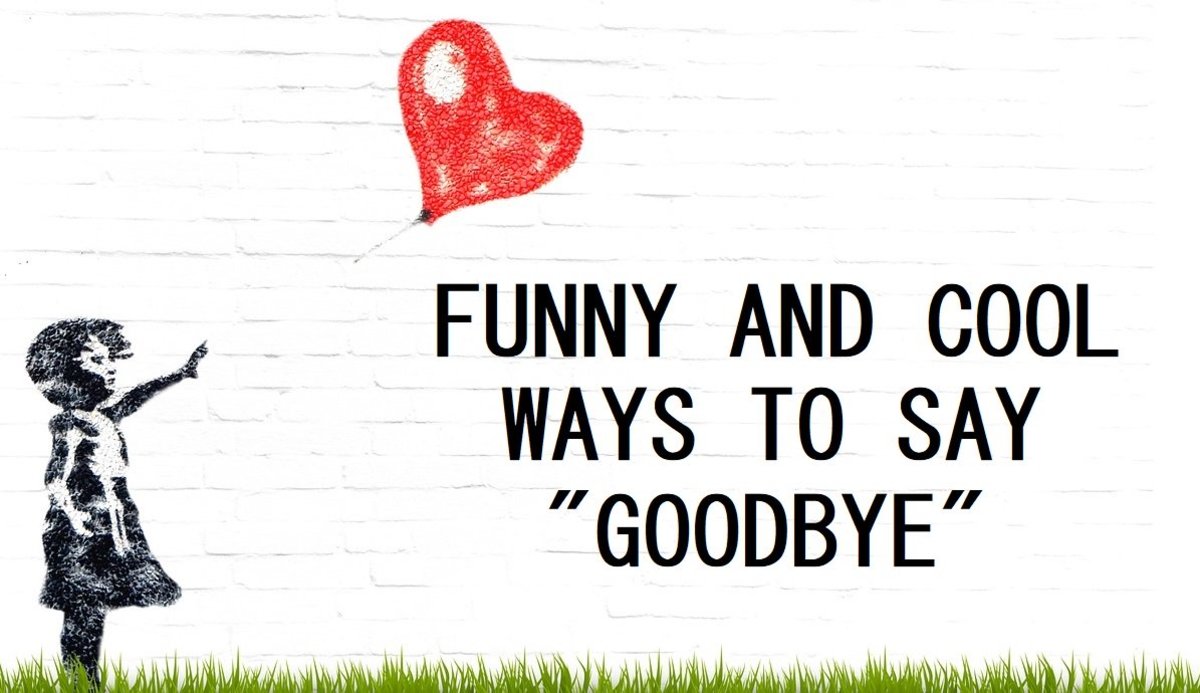English is so prevalent nowadays that everyone has a strong desire to master the language so as to enjoy the benefits it brings about. Among four core skills, English learners may have most difficulties with speaking skills, which may result from speed, intonation, stress, and, of course, diversity. Many of them only follow what they are taught without finding out new ways to express their ideas. For this reason, we will be providing you with alternatives to the daily phrases.

1. Common questions to ask how someone is
As you may already know, the most commonly used question is “How are you?” However, there are many different ways that you can use to ask others about their status:
- What’s up? – For close friends and your acquaintances.
- What’s new?
- How is it going?
- How is everything?
- How are things
- How is life?
In a more formal situation, there are 2 other options:
- How’s life been treating you?
- What have you been up to recently?
In response to these questions, you can choose either of these below:
- I’m fine, thanks? How are you? / How about you? : This is the most common use response and usually appears in dialogue for beginners.
- Pretty good! – If you are ok, not so amazing and noticeable.
- Same old really! – If nothing much has changed, just the same as usual
- Not so great really! – If your things haven’t been so good.
- Could be better! – A state of complaining.
- Can’t complain! – Everything is going well and you don’t want to show off. It somehow means that others are having it much worse than me so I won’t say a negative thing to my own life.
Example:
A: Hi, Ellen. Long time no see. How is everything?
B: Not so great really! How about you?
A: Can’t complain. Everything is just as fine as it should be.
A: Hello Kim, what have you been up to recently?
B: Hi George, I’m doing pretty well? How are you?
A: Same old really? Do you have time for a cup of coffee ?
B: Yes, please. It’s been a long time since high school.

2. Common phrases to say thank you
- I really appreciate that/ it: It’s kind of a formal way and this is quite heartfelt.
- I’m really (ever so) grateful: A more formal one
- That’s so kind of you – If someone has shown you an act of kindness
- I owe you one/ big time – In case you want to do them a favor in return
Common phrases to response to thank you:
- You are most welcome! – A formal way and mostly overused.
- No worries! – It’s OK so take it as please.
- My pleasure! / Pleasure!
- Any time.
Example:
A: Thank you for helping me with my homework. I really appreciate that. I would have stuck in trouble.
B: No worries. I just did the best I could. Maybe next time you should be more aware of the deadlines.

3. Common phrases to ask for information
- Do you have any clues/ ideas….?
Example:
Do you have any clues where the supermarket is?
Do you have any ideas of how we can change our booking?
Do you have any clues when our lessons start?
- You wouldn’t happen to know …, would you?
- I don’t suppose you (would) know…? – Same meaning as number 24
Example:
You wouldn’t happen to know astrology, would you?
I don’t suppose you’d know where Anna’s house is?

4. Common ways to say “I don’t know”
- I have no idea / I haven’t got any idea.
- I haven’t got a clue – Some British people will say “Sorry, I haven’t a clue”, and it’s very common, even in a radio program.
- Sorry I can’t help you there / Sorry I can’t be any help
- I’m not really/ so sure
- Actually I’ve been wondering the same thing / I’ve been wondering that too – If both you and your partner don’t know about a thing.
Example:
A: Do you happen to know where the nearest bus-stop is?
B: Actually this is my first time here, so I’ve been wondering that too.
A: You wouldn’t happen to know how to fix this bike, would you?
B: Yeah, I’m not really sure about this. Maybe we can take it to the repairman and find some help.

5. Common ways to say agree
- Exactly!
- Absolutely!
- That’s so true!
- That’s so right! / You’re so right/ You’re right.
- I 100% agree – You completely agree to the idea. This is a slang and only used in spoken English. So don’t write it in your essay.
- I couldn’t agree more – Mostly used in British English but sometimes American use it too.
- Tell me about it – It’s very informal, as we are not asking you to tell us about anything. It’s just another way of saying “Ah, yes. I felt it the same way”.
Example:
A: Let’s have pizza tonight!
B: Absolutely! We haven’t been eating it for weeks.
A: I think we should take an Uber home. My car has just broken down.
B: You’re right. You can come back and pick it up tomorrow.

6. Common phrases for disagreeing
- I’m not so sure about that. (“so” here is very important)
- That’s not how I see it? / I don’t quite see it like that.
- Not necessarily… (we often stretch this one out to imply our answer)
- I can’t (really) agree with you there
Example:
A: We should buy some carton boxes for the project. Yesterday I saw Walmart is selling it. Maybe we can go and have a look.
B: Not necessarily. I think some stores just throw it away after they unbox. We should ask them for some of it with a more reasonable price, shouldn’t we?
A: Are you having any plans tonight? Let’s go for a drink at Charles’s?
B: I’m not so sure about that. Maybe next time. I’m not feeling so well today.

7. Common phrases to end a conversation politely
- Well it was lovely chatting to you? / It was nice talking with you!
- Right I’d better be going / I need to get going.
- I must be off – Normally use it when looking at your watch. (but it’s awkward now that we have a phone and when looking at our wrist, there’s no watch, so be careful when you’re about to say it.)
Examples:
A: Well it was lovely chatting to you. I really need to get going. Maybe we will meet up next time.
B: You’re most welcome. We should go shopping and have lunch sometimes. It would be great. See you soon.
:max_bytes(150000):strip_icc()/GettyImages-691418072-59756cd29abed50011326125.jpg)
8. Common phrases for saying goodbye
- Speak (to you) soon!
- Send my love to your family – If you know their parents, siblings and friends. We don’t actually expect them to say so-and-so or send our love to anyone, it’s just a nice sentiment, a polite gesture.
- You can take care now/ Take care
- Bye bye/ Goodbye
- Talk to you later
More example:
Flinch: How is it going, Bernadette? You look so worried. What’s happened?
Bernadette: I’m fine, thanks. I am just a little nervous about my exam. You know it’s a really hard one.
Flinch: Oh, don’t worry. Everything will be alright. Have you been well-prepared for it?
Bernadette: Yeah, but there are some parts I don’t really understand. I’ve been looking for it in the library all day. But there’s no clues.
Flinch: Sorry but I can’t help you there. But maybe you should ask someone for help, someone who studies the same faculty. Oh, I know an expert in your area, he is also a senior in your school. Would like me to introduce you to him?
Bernadette: That would be great, Flinch. Thank you so much.
Flinch: Any time. Here’s his phone number. Give him a call and you’ll find some help.
Bernadette: Thanks a lot, Flinch. I owe you this time. It would be a great help to my project.

Above are the phrases which you should you in place of “Thank you”, “I agree/ disagree with that”, etc. for a better change. They are among the most common phrases used by native speakers, so saying them will help you sound more natural. Also, pay attention to the stress of words and intonation of the sentence. Check them out in the video below:





Very interesting and useful for English learners. Thank you. It can inspire me when I try to get my students interested in the matter!
Thanks ad so much. Give me to the lessons very amazing.